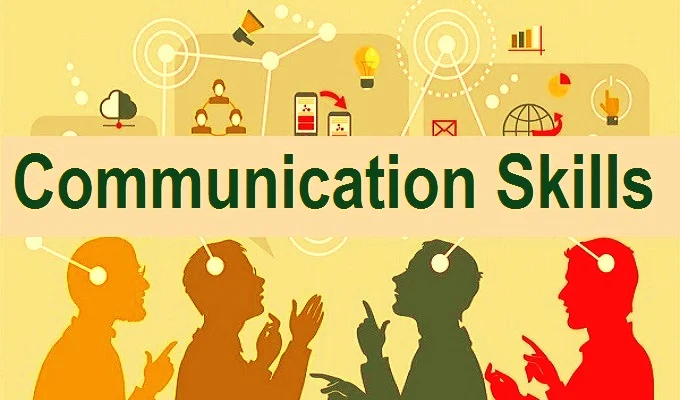
Have you ever daydreamed of watching your kids give an idiomatic speech in front of a sea of people and thanking you for raising him the way you did, and the spotlight falls on you and everyone’s looking at you as you try to hold the river of tears from streaming down your face and your partner holding you steady? Ever had that dream?
- Ten Steps to improve Public Speaking Skills Of Your Child
- Research on the the public speaking topic
- Organise all the information for your public speech
- Use flashcards to memorize
- Practice and positive reinforcement
- Record your speech
- Use hand gestures to deliver a more effective speech
- Give constructive feedback
- Rehearse. Rehearse. Rehearse.
- Superhero pose on the public speaking day
- Have faith in them and your efforts
I’m sure every mother once in her lifetime has had one such dream. But alas, when the reality kicks in you realize your son still struggles to maintain eye contact with a stranger, let alone a speech.
What if we tell you we can help you build up that needed confidence so that your kid can give a speech in front of thousands of unknown people? Why wouldn’t you give it try?
This isn’t just about fulfilling your dreams but this skill also helps improve your child’s communication skills, his social skills, builds up his leadership skills, and helps to improve his critical thinking.
The question still stands, how do you improve your child’s public speaking skills? Easily. I have listed the entire process in ten simple steps. But with children, patience and perseverance often work just fine but public speaking skills require more than that.
Follow the below steps while you prepare for the big day of your child, be it a presentation or elocution competition, these steps will make your job simple.
Also read Different Formats of Academic Debates: Know them all
Ten Steps to improve Public Speaking Skills Of Your Child
Research on the the public speaking topic
“You want me to tell my 7-year-old son to do his research when he doesn’t even put all his toys back in the basket?” I’m sure that is what you’re thinking about right now. But let your child do a little research, let him understand some concepts on his own. Encourage reading from books and not screens. Ask them open-ended questions like “What do you think a doctor does?” and “Who is a policeman?” such questions will kindle in them the curiosity to know more. Do not baby talk with them, talk to them like they’re adults, use stronger vocabulary.
Also read Communication Skills- How to Communicate Effectively
Organise all the information for your public speech
The next step is to organize all the information you and your kid collected systematically to form his speech. The best way to write a speech is by beginning off with a quote and then ending the speech on a similar quote. It makes a very good impact.
Use flashcards to memorize
They are the best way for your kid to memorize his speech is by using flashcards. These also help in the last minute revision by engaging in the active recalling of the speech.
Practice and positive reinforcement
Practice makes a man perfect but only if you keep persevering. Positive reinforcement generally works well for kids so that they do not give up very easily. They could lose interest in a task if you don’t reinforce them when they need to be. Like a pat on their back or some encouraging words like, “I am proud of you” help a lot in the long run.
Record your speech
Beyond practising, we think we have done our job of improving our kid’s public speaking skills? This is not enough. The step onwards is when you start polishing their skills. When you record your child’s speech, it helps you to go over his speech. It also helps in making notes of where he requires to pause and which words is he supposed to stress upon. Teaching voice modulation becomes easy by doing this step.
Use hand gestures to deliver a more effective speech
Have you ever watched an orator addressing his audience? He always makes hand gestures, especially when he has an important point to make. They help to make a bigger impact on the audience. Moreover, it also catches the attention of those who aren’t paying attention. Hand gestures ensure that your child has something important to say, so the audience pays attention more closely.
Give constructive feedback
Well, we as adults do not like being corrected, do you think kids would like it if we correct them all the time? I don’t think so. Feedback like, “Maybe instead of doing it like this you could do it this way” and when he corrects himself, positive reinforcement is a must. This helps to boost the confidence and they feel important because you’re addressing them with respect like they’re adults.
Also read Determinants of Personality
Rehearse. Rehearse. Rehearse.
Grand rehearsals before a show are always very important. Dressing up suitably, going to the venue, and mock performing with imaginary crowd helps him understand the amount of pressure he would have to face. He will also learn how to cope up with the stress. This step ensures that you have put in enough effort and now he is prepared to face a crowd. If not, then some extra practice would do just fine.

The next two points are for D-Day. Remember, it is okay to be nervous, it helps to kick in the required adrenaline in your body.
Superhero pose on the public speaking day
If you have watched Grey’s Anatomy you know that Amelia Shepherd stands up straight before a big surgery. She keeps her feet apart and her wrists rested on her waist, with the chin up. Standing up straight like a superhero has proved to boost confidence. As per a Harvard study, when you stand up straight with your chest out, you’d feel confident and perform better.
Also read Here is How To Develop Your Confidence!!
Have faith in them and your efforts
This is it, you see your kid going up on the stage when he looks up to you for reassurance, all he now needs is a small push, a smile, a thumbs up indicating do your best baby, nothing can stop you from bagging that 1st position today in the elocution competition, or getting that A+ in your presentation.
“You have to dream before your dreams can come true.” Very rightly said by Sir A.P.J Abdul Kalam. We together dreamt of your child on the stage delivering a speech and you couldn’t help but feel so overwhelmed with joy and elation. You have the secret recipe on how to improve public speaking skills of your child, what is stopping you from practising already?





